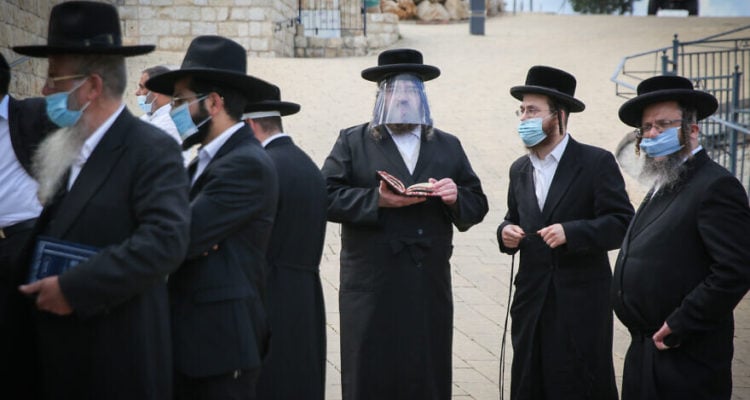Suddenly, the discussion is no longer about the identity of the coronavirus carriers; no accusations are being flung at them for the way in which they choose to observe their Judaism.
By Ruthie Blum, JNS
Two weeks after Israel gradually reopened its education system, students and teachers around the country came down with the coronavirus, forcing thousands of their peers and family members into quarantine.
The main hotspot has been the Jerusalem high school, Hagymnasia Haivrit, in the capital’s Rechavia neighborhood, which had to shut down due to the more than 130 adults and teenagers who tested positive to COVID-19.
More than 17 additional schools also closed, some by ministerial order, and a few by parental decree.
If the trend continues, the Education Ministry may succumb to pressure from health officials to send everyone home to resume classes via Zoom—just like during the good old days less than a month ago.
Kids were honest about how this happened. Few adhered to social-distancing and mask-wearing regulations. Many greeted one another with hugs and kisses. The general feeling among all was that the crisis was over.
The thousands of beach-goers who descended upon the shores of the Mediterranean as soon as the government lifted restrictions on doing so exhibited a similar sense of freedom from lockdown bondage. Ditto for the diners and partiers who piled in to cafes, restaurants, bars and nightclubs with great fervor, but little attention to the government’s frequent urgent requests to practice social distancing, wash hands and wear masks.
The most striking aspect of the sharp spike in infection—which, so far, has not led to a corresponding rise in the number of deaths—is the response to it on the part of the mainstream media and Twittersphere. Though many pundits have been opining that “we reopened the economy too soon,” nobody is faulting a particular religious or socioeconomic demographic. Some critics attack the young for being selfish and clueless, thus endangering the lives of their elders with pre-existing medical conditions.
Others vocalize a general dim view of Israeli culture, in which rule breaking is a badge of honor—or at least a sign of cool rebelliousness and an assertion of independence over authority figures.
But no one has mentioned that the people causing the current uptick in COVID-19 cases are secular Israelis. You know, the ones who adhere even less to Jewish law than they do to pandemic regulations.
One need not imagine the kind of epithets that would be flying through the air right now—faster than coronavirus droplets—if the transgressors in question were members of the haredi (ultra-Orthodox) community. No, that scenario has been an integral part of the blame game since the deadly virus first reared its microbes in the Jewish state.
As soon as Israelis started getting sick and dying, the haredim became both the face of the tragedy and the culprits behind its spread. Rather than examining and trying to empathize with the key reasons for the high rate of infection among the ultra-Orthodox—such as the large size of nuclear families living in cramped quarters, and a lack of access to news via TV and the Internet—the country turned on them as the perfect scapegoat for its frustration and fear of getting ill.
Even when the massive education campaign in haredi-majority areas proved successful—with the added benefit of bringing Israel Defense Forces soldiers and black hats together in a touching show of mutual kindness and admiration—the media played up every subsequent violation displayed by the disobedient minority.
Following the Lag B’Omer holiday last month, for instance, news sites highlighted every ultra-Orthodox bonfire with dramatic headlines while giving a perfunctory nod to the fact that most of the community stayed at home.
The enmity towards the haredim is not restricted to secular Israelis. On the contrary, the country’s national-religious community is often even angrier at their extremist co-religionists for opposing military service and, in case of some sects, for rejecting Zionism altogether.
Ironically, secular Israelis rarely can distinguish between one group of haredim and another, treating them as a homogenous bunch. But then, few people are as judgmental and discriminatory as those who fancy themselves to be truly “enlightened.”
This brings us back to the new outbreak of COVID-19, which has struck not the ultra-Orthodox, but their oh-so-liberal counterparts.
Suddenly, the discussion is no longer about the identity of the coronavirus carriers. Indeed, no accusations are being flung at them for the way in which they choose to observe their Judaism.
Nor are the hip Israelis who flouted the directives to such an extent that the government may have to reinstate temporary closures apologizing to the haredim, whom they previously vilified for the same behavior.
Let the rest of us do it for them, then, while hanging our heads in shame.





